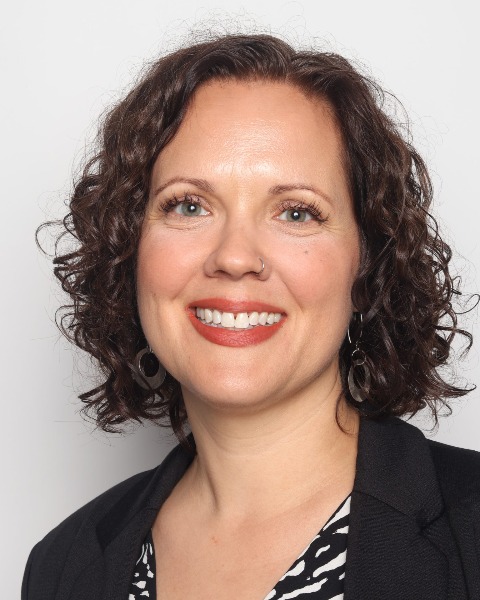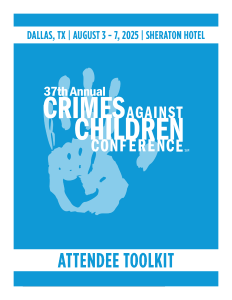Workshop
Sheraton Conference Center - 1st Floor
Come Prepared and Leave In Sync: Structuring Pre-and Post-Forensic Interview Discussions to Boost MDT Collaboration
Tuesday, August 5, 2025
4:00 PM – 5:15 PM CT
Location: Dallas A3
Earn 1.25 Credit Hours
Target Audience: Law Enforcement, Victim Advocate, Forensic Interviewer, CPS, CAC

Lydia Johnson Grady (she/her/hers)
Program Manager for MDT Development
Southern Regional CAC, National Children's Advocacy Center
Primary Presenter(s)
This workshop will explore how a well-structured pre- and post-forensic interview process can improve interview outcomes and enhance MDT collaboration. While many teams still look to case review as the best venue to foster teamwork and coordination, research tells us that creating intentional team procedures before and immediately following a forensic interview can help mitigate challenges to efficient coordination and increase the likelihood of effective communication.
Well-structured team discussions support more effective interviews, unearth important team knowledge, clarify roles and tasks, and cultivate coordination among the diverse members of an MDT. These structured conversations can also help to address biases held by MDT members, preventing the team from operating on assumptions. Drawing on experience in the field and data collected from researchers, the presenter will share promising practices that help teams establish shared purpose, foster relationships, clarify taskings and responsibilities, and prioritize the next steps. Throughout the workshop participants will explore how various MDT roles involved in the forensic interview can contribute to and benefit from a structured pre- and post-interview process.
Well-structured team discussions support more effective interviews, unearth important team knowledge, clarify roles and tasks, and cultivate coordination among the diverse members of an MDT. These structured conversations can also help to address biases held by MDT members, preventing the team from operating on assumptions. Drawing on experience in the field and data collected from researchers, the presenter will share promising practices that help teams establish shared purpose, foster relationships, clarify taskings and responsibilities, and prioritize the next steps. Throughout the workshop participants will explore how various MDT roles involved in the forensic interview can contribute to and benefit from a structured pre- and post-interview process.
Learning Objectives:
- Identify four core functions of a child abuse multidisciplinary team (MDT).
- Describe four potential benefits of a well-structured pre-forensic interview team process.
- Identify key components of a pre-forensic interview discussion structure and post-forensic interview discussion structure.

